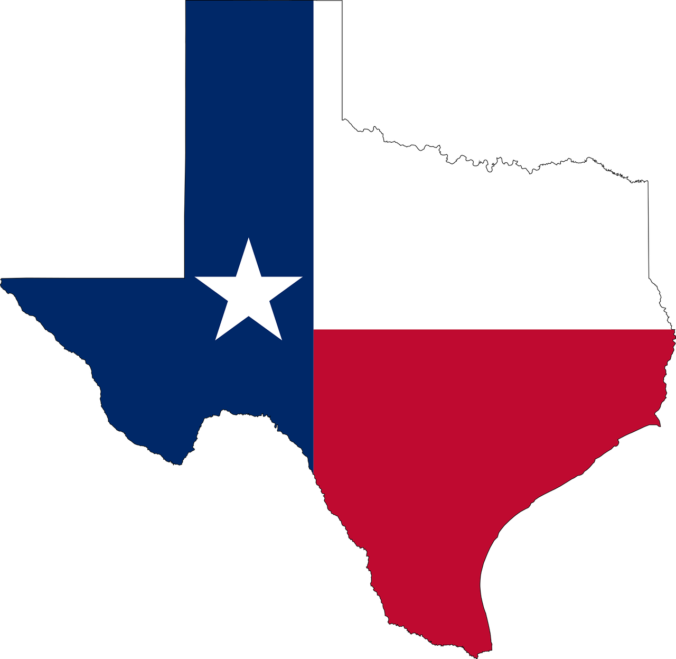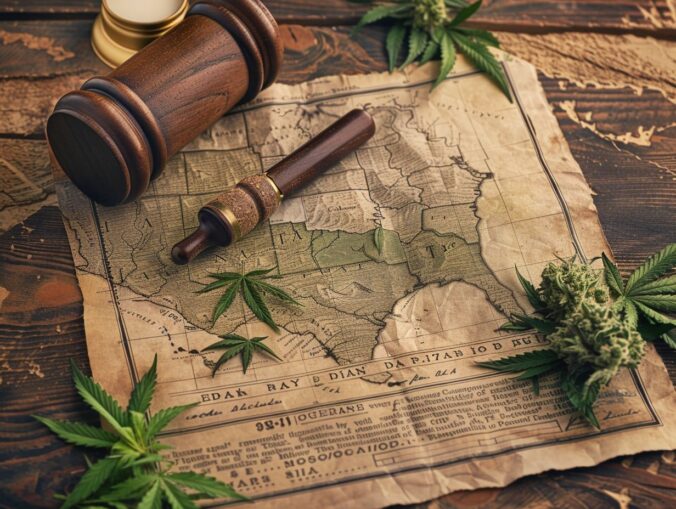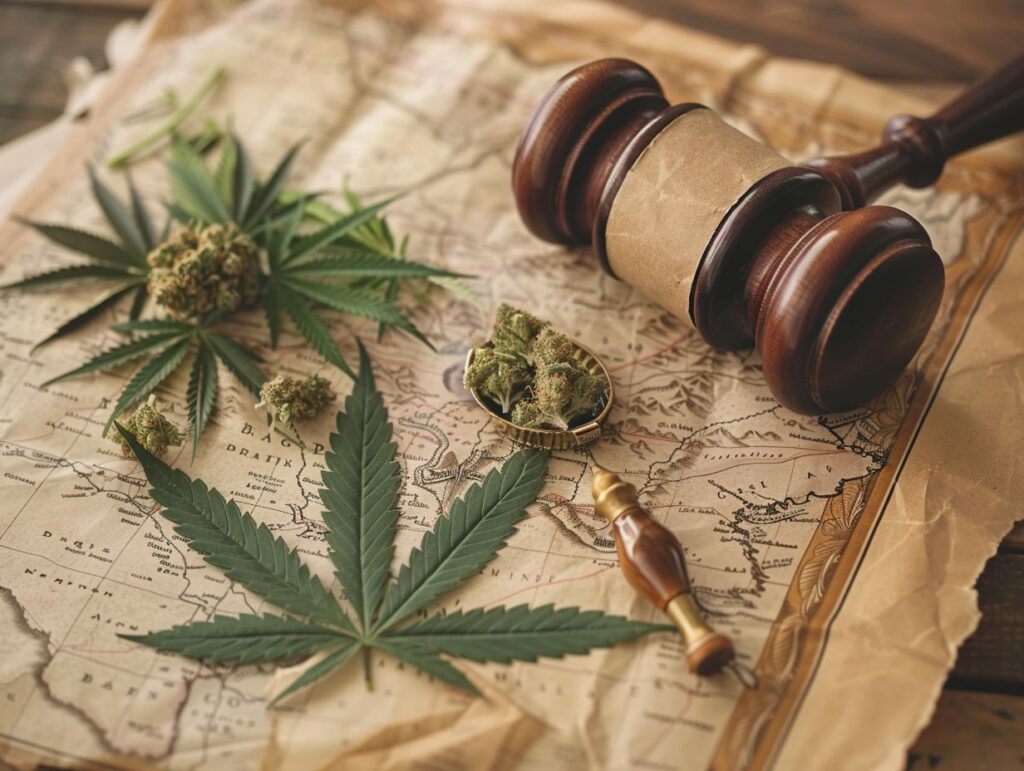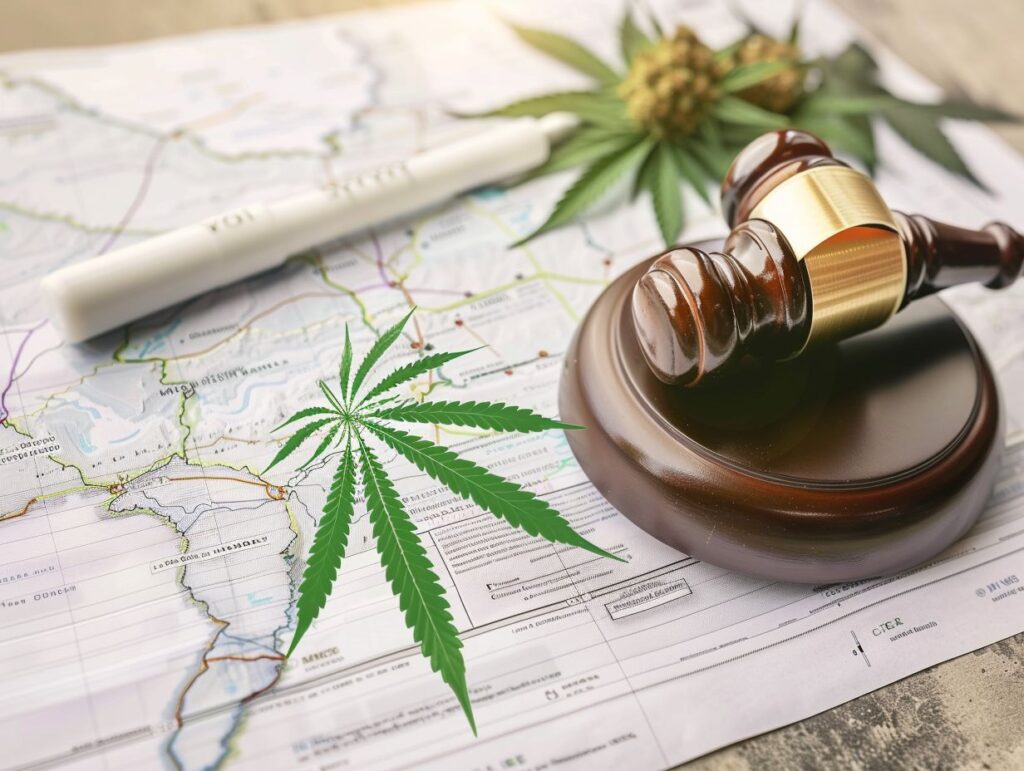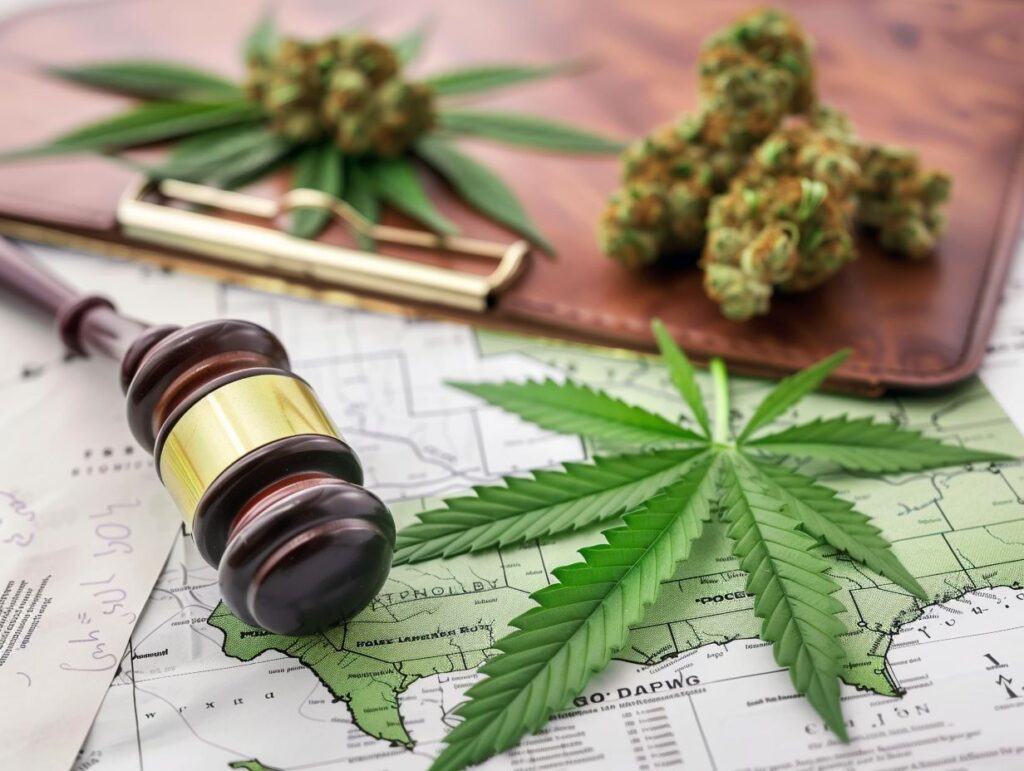Curious about CBD and its differences from marijuana? Wondering about the legality of CBD in Texas and how dispensaries obtain their products?
We will explore the regulations and guidelines that dispensaries in Texas must follow, including the role of the Texas Department of State Health Services and the Texas Department of Public Safety.
Discover how dispensaries ensure the purity and safety of their CBD products through third-party lab testing and quality control measures, and learn about common contaminants found in CBD products. Prioritize purity and safety when it comes to CBD in Texas.
What is CBD and How is it Different from Marijuana?
CBD, short for cannabidiol, is a natural compound found in the cannabis plant. Unlike marijuana, CBD does not induce psychoactive effects due to its low THC content.
CBD has been used for centuries, with its origins dating back to ancient civilizations like the Egyptians and Chinese, who recognized its therapeutic properties.
Today, CBD is gaining popularity for its potential health benefits, such as reducing pain, anxiety, and inflammation.
The purity and safety of CBD products have become a major focus, leading to the establishment of legal requirements and regulations to ensure consumers are receiving high-quality, trustworthy products. These regulations aim to guarantee that CBD products contain the specified levels of CBD and minimal THC, promoting transparency and consumer confidence.
Legality of CBD in Texas
In Texas, the legality of CBD products depends on their THC content, with products containing less than 0.3% THC being legal for purchase and consumption.
Regulations in Texas emphasize the importance of sticking to these specific THC limits to ensure compliance with state laws. Any CBD product exceeding this threshold is considered illegal under current regulations. State laws have been put in place to ensure that consumers are protected and products are safe for consumption. Retailers and manufacturers must adhere to these regulations to operate legally within the state. It is essential for businesses in the CBD industry to stay informed and updated on any changes to maintain compliance with Texas laws.
How Do Dispensaries in Texas Obtain CBD Products?

Dispensaries in Texas source their CBD products through various channels, including local suppliers, hemp farms, and out-of-state distributors.
It is crucial for dispensaries to carefully navigate the procurement process to ensure they are sourcing high-quality CBD products that meet regulatory standards. By working with reputable suppliers who adhere to stringent testing procedures and product traceability, dispensaries can guarantee the safety and efficacy of the products they offer to their customers. Establishing relationships with trusted suppliers not only ensures consistent quality but also helps in maintaining transparency and compliance with state regulations in Texas.
Hemp-derived CBD Products
Hemp-derived CBD products are obtained from industrial hemp plants through extraction methods such as CO2 extraction, ensuring high purity and minimal THC content.
These products offer numerous benefits due to their high potency and efficacy in promoting wellness and balance within the body. By utilizing CO2 extraction, manufacturers are able to maintain the integrity of the CBD compound, resulting in a product that is free of harmful impurities and contaminants. Adhering to organic standards in the cultivation of hemp ensures that the final product is free from pesticides and other harmful chemicals, further enhancing its purity and efficacy. It is essential for consumers to choose CBD products that are compliant with organic standards to experience the full benefits of this natural remedy.
Out-of-State CBD Products
Out-of-State CBD products are sourced from reputable manufacturers outside of Texas, requiring stringent product traceability measures to ensure quality and compliance with state regulations.
One of the key challenges faced when sourcing CBD products from out-of-state suppliers is the difficulty of ensuring transparency in the supply chain. Without direct oversight, it can be more challenging to track the origins of the products and verify that they have undergone necessary third-party testing for contaminants.
The benefit of sourcing from out-of-state suppliers lies in the potential to access a wider variety of products, offering consumers a greater selection to choose from. Transparency in sourcing is crucial to instill confidence in consumers about the safety and quality of the products they are purchasing.
What Regulations and Guidelines Do Dispensaries in Texas Have to Follow?
Dispensaries in Texas are required to adhere to strict regulations set by the Texas Department of State Health Services (DSHS), the Texas Department of Public Safety (DPS), and local governing bodies to ensure consumer safety and product quality.
These regulations encompass various aspects of the dispensary operations, including quality assurance protocols, security measures, employee training requirements, and inventory tracking systems. Compliance with these industry regulations is essential not only for maintaining the integrity of the cannabis market but also for safeguarding public health and safety. By adhering to these standards, dispensaries help build trust with consumers and contribute to the overall credibility of the legal cannabis industry in Texas.
Texas Department of State Health Services (DSHS)
The Texas Department of State Health Services (DSHS) oversees the regulation of CBD products in Texas, implementing guidelines to ensure product safety, quality, and compliance with state laws.
These regulations enforced by the DSHS require CBD product manufacturers to adhere to strict testing procedures to verify the quality and safety of their products. Compliance with health department guidelines is crucial as it ensures that the products are free from contaminants and meet the specified standards for consumption. Companies must maintain thorough quality control measures to guarantee consistency in the production process. Obtaining certificates of analysis is a key component to demonstrate product compliance and safety in the market, ultimately impacting consumer trust and the overall development of the CBD industry.
Texas Department of Public Safety (DPS)
The Texas Department of Public Safety (DPS) plays a crucial role in overseeing the laboratory testing procedures conducted by dispensaries to verify the purity, potency, and safety of CBD products in compliance with state laws.
Through rigorous laboratory analysis, the DPS ensures that CBD products meet specified standards for potency and are free from contaminants. Third-party testing is vital in this process to provide an unbiased validation of product quality. By adhering to strict quality standards, such as testing for heavy metals, pesticides, and microbial content, the DPS safeguards consumers from potentially harmful products, promoting transparency and accountability within the CBD industry. This commitment to ensuring product safety and accuracy reflects the DPS’s dedication to public health and regulatory excellence.
Local Regulations and Guidelines
Local regulations and guidelines supplement state laws in Texas, providing additional oversight on dispensary operations, product labeling, and transparency measures to maintain consumer trust and safety.
These local regulations play a critical role in upholding standards of transparency and compliance within the cannabis industry. By enforcing guidelines related to sourcing, labeling, and product quality, authorities ensure that customers have access to accurate information about the products they are purchasing.
Proper labeling practices not only inform consumers about the contents and potential effects of different cannabis products but also contribute to public health and safety by helping to prevent misunderstandings or misuse. Quality control measures dictated by these regulations further bolster the credibility of dispensaries and strengthen accountability across the supply chain.
How Do Dispensaries Ensure the Purity and Safety of Their CBD Products?
Dispensaries in Texas employ rigorous quality control measures, including third-party lab testing, to guarantee the purity and safety of their CBD products for consumer consumption.
These testing procedures involve comprehensive analysis of the products to ensure they meet strict quality standards. By utilizing accredited third-party laboratories, dispensaries can provide customers with assurance regarding the potency levels and ingredients of the CBD products they purchase.
Product traceability plays a vital role in maintaining accountability throughout the supply chain, allowing consumers to track the origins of their CBD products and ensuring transparency in the manufacturing process. This commitment to quality assurance enhances consumer trust and fosters a reliable marketplace for CBD products in Texas and beyond.
Third-Party Lab Testing
Third-party lab testing is a crucial step undertaken by dispensaries to verify the potency, purity, and absence of contaminants in CBD products, ensuring compliance with industry standards and consumer safety.
Through third-party lab testing, CBD products undergo rigorous analysis to determine their cannabinoid content, such as the levels of CBD and THC. Quality control measures are implemented to maintain consistency in product formulation, ensuring that each batch meets the specified standards. These tests also assess for the presence of contaminants like pesticides, heavy metals, and residual solvents, safeguarding consumers from potential health risks.
Lab analysis plays a pivotal role in obtaining product certification, indicating that the CBD product has undergone thorough quality assessment and meets regulatory requirements.
Quality Control Measures
Dispensaries implement stringent quality control measures to uphold product safety, compliance with regulations, and adherence to industry standards, ensuring consistent quality and consumer satisfaction.
These measures play a crucial role in maintaining the integrity of products and safeguarding the well-being of consumers. By conducting thorough product evaluations and rigorous quality assurance processes, dispensaries can identify issues early in the production cycle, preventing potential safety hazards. Effective quality control also enhances trust among customers, as they can rely on the consistent quality and safety of the products they purchase. Compliance with industry regulations ensures that dispensaries operate ethically and transparently, fostering a positive reputation and long-term success in the market.
Proper Storage and Handling
Proper storage and handling practices are essential for maintaining the quality and safety of CBD products, preventing contamination, and preserving potency levels throughout the supply chain.
Ensuring that CBD products are stored in a cool, dark place away from direct sunlight and heat is crucial to prevent degradation of cannabinoids. Storing CBD products in airtight containers will help maintain their shelf life and prevent exposure to moisture, which can impact their quality.
Regularly monitoring the temperature and humidity levels of the storage area is also recommended to uphold product integrity. Adhering to strict quality standards in storage and handling procedures not only ensures product safety but also helps in delivering consistent and effective CBD products to consumers.
What Are the Common Contaminants Found in CBD Products?
Common contaminants found in CBD products include pesticides, heavy metals, microbes, and residual solvents, posing health risks and necessitating stringent quality control measures.
Pesticides are commonly used in agriculture to ward off pests and can find their way into CBD products through the cultivation process. Heavy metals like lead and mercury, if present, can accumulate in the body over time, leading to serious health implications. Microbial content such as bacteria and molds can thrive in improperly processed CBD products, causing infections and gastrointestinal issues.
To combat these potential risks, it’s imperative for manufacturers to employ rigorous testing procedures to ensure product purity and safeguard the health of consumers.
Pesticides and Herbicides
Pesticides and herbicides are common contaminants in CBD products, originating from agricultural practices and requiring thorough testing procedures to ensure product safety and compliance with quality standards.
These harmful substances can pose serious health risks to consumers, particularly when ingested regularly over time. Exposure to pesticides and herbicides has been linked to various health issues, including respiratory problems, skin irritation, and even more severe conditions like cancer.
Organic CBD products, which are free from these harmful chemicals, have gained popularity due to their safer and cleaner profile. The certification of organic products requires stringent testing protocols to verify the absence of pesticides and herbicides, providing consumers with peace of mind regarding the quality and safety of the products they are using.
Heavy Metals
Heavy metals, such as lead and mercury, can contaminate CBD products through soil absorption, posing serious health risks and necessitating strict quality control measures to ensure product integrity and consumer safety.
Consumers who use CBD products contaminated with heavy metals may unknowingly ingest these toxic substances, leading to a range of health issues including neurological disorders, organ damage, and even cancer. The impact of heavy metal contamination on consumer health is particularly concerning as these metals accumulate in the body over time, causing long-term harm. This highlights the crucial role of quality management practices in the CBD industry to monitor and verify product purity, preventing the presence of harmful substances like heavy metals.
Microbes
Microbes, including bacteria and fungi, can contaminate CBD products during cultivation and processing, requiring stringent testing procedures to detect and eliminate microbial content for product safety and quality.
Such microbial contamination poses significant risks to consumers, as ingestion of contaminated CBD products can lead to adverse health consequences. Poor handling and processing practices can introduce harmful microbes, compromising the overall safety of the products.
To mitigate these risks, manufacturers must adhere to strict quality control measures, including conducting comprehensive testing for microbial content. Certificates of analysis and batch records play a crucial role in ensuring that products meet regulatory standards and are free from harmful microbes before reaching the market.
Solvents
Residual solvents from extraction methods can contaminate CBD products, posing health risks to consumers and underscoring the importance of transparency in disclosing extraction processes and ensuring product purity.
Solvents such as butane, propane, and ethanol can be left behind in CBD products if not properly removed during the extraction process. These solvents can be harmful when ingested, inhaled, or absorbed by the body, potentially leading to adverse health effects.
Transparency in sourcing and extraction methods is crucial for consumers to make informed decisions about the products they use. Knowing where the CBD comes from and how it is processed helps ensure quality and safety. Therefore, companies must prioritize transparency to build trust and protect consumer well-being.
Frequently Asked Questions
How do dispensaries in Texas ensure the purity and safety of their CBD products?
What measures do dispensaries in Texas take to ensure the purity of their CBD products?
Dispensaries in Texas must follow strict regulations and guidelines set by the state to ensure the purity of their CBD products. This includes extensive testing and certification processes for all products.
Do dispensaries in Texas test their CBD products for contaminants?
Yes, dispensaries in Texas are required to test their CBD products for contaminants such as pesticides, heavy metals, and residual solvents to ensure their safety for consumers.
How often do dispensaries in Texas test their CBD products?
Dispensaries in Texas must test their CBD products at least three times before they can be sold to consumers. This includes testing at the cultivation, extraction, and final product stages.
What happens if a CBD product in a Texas dispensary fails the purity and safety tests?
If a CBD product fails the required purity and safety tests, it cannot be sold to consumers and must be disposed of properly. The dispensary may also face penalties for selling non-compliant products.
Do dispensaries in Texas have to disclose the test results for their CBD products?
Yes, dispensaries in Texas are required to provide customers with access to the test results for their CBD products upon request. This promotes transparency and allows consumers to make informed decisions about their purchases.
How can consumers verify the purity and safety of CBD products in Texas dispensaries?
Consumers can ask to see the COA (Certificate of Analysis) for the CBD product they are interested in purchasing. This document contains the test results for that specific product, ensuring its purity and safety.
